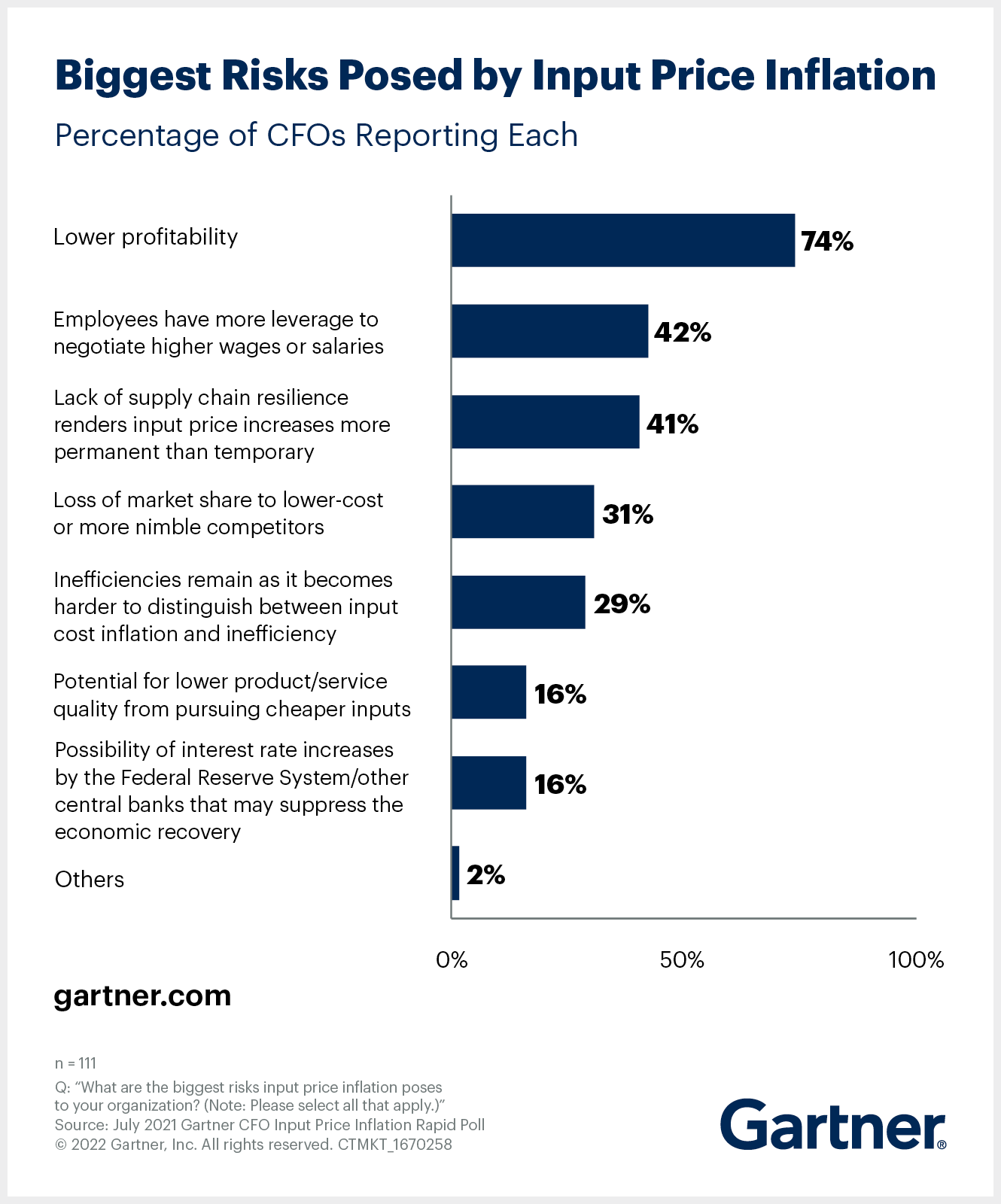
Digital Deflation in Response to Inflation
It’s safe to say that hardly anyone today is unfamiliar with the concept of inflation and its profound impact on our lives and our businesses. According to Gartner, a staggering 75% of CFOs identify reduced profitability as the primary risk generated by the rising inflation. The lowered profitability may be caused by not updating prices to match current costs. Many companies struggle to keep track of their Total Manufacturing Cost (TMC), which presents what financial outlay was needed to manufacture an item or a batch, considering the following components:
- Material costs based on consumption and batch sizes,
- Machinery operation costs,
- Labor expenses,
- Manufacturing utility costs.
Continuous monitoring of the cost effectiveness of production is not just about safety; it’s also about agility. Surprisingly, nearly one-third of CFOs view agility as a risk resulting from inflation, simply because businesses need to adapt faster than they often do. In this context, we should understand this “risk” as a competitive advantage, enabling us not only to mitigate the negative impact of inflation but also to leverage it to increase our market share. Although the MES can provide TMC information, it should not operate in isolation. Instead, it should be integrated seamlessly with ERP, WMS, EAM, and HR/payroll systems, depending on the solutions implemented in a company. Numerous experts argue that Digital Deflation may provide a solution to the risks identified by Gartner, but what exactly is it? While the natural response to rising inflation involves seeking savings or at least delaying expenses until inflation subsides, digital deflation involves investing in technology to permanently reduce operating costs. This strategy mainly includes:
- Reducing labor costs,
- Reducing waste,
- Eliminating inefficiencies,
- Boosting productivity and the aforementioned efficiency in decision-making, as better data leads to better decisions.


Michał Zieliński is a graduate in Automatic Control and Robotics, as well as a postgraduate Lean Six Sigma Black Belt from Gdansk University of Technology. He is a partner at ImFactory, where he works as a Project Manager and Head of the Digital Consulting Department. At ImFactory, he is involved in shaping a vision for the advancement of IT systems in manufacturing environments, evaluating the digital maturity of enterprises, and planning their Digital Transformation journey. His projects encompass a wide range of activities, from overseeing surveillance and monitoring installations to implementing comprehensive integrated manufacturing management systems.
See also
Want to learn more? Visit our Knowledge Base, where you'll find articles and webinars by experts to expand your knowledge.
Check if Digital Transformation is the Answer to Your Company's Needs































